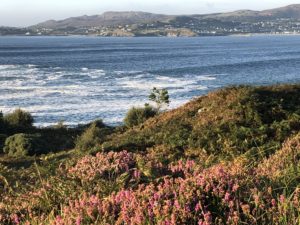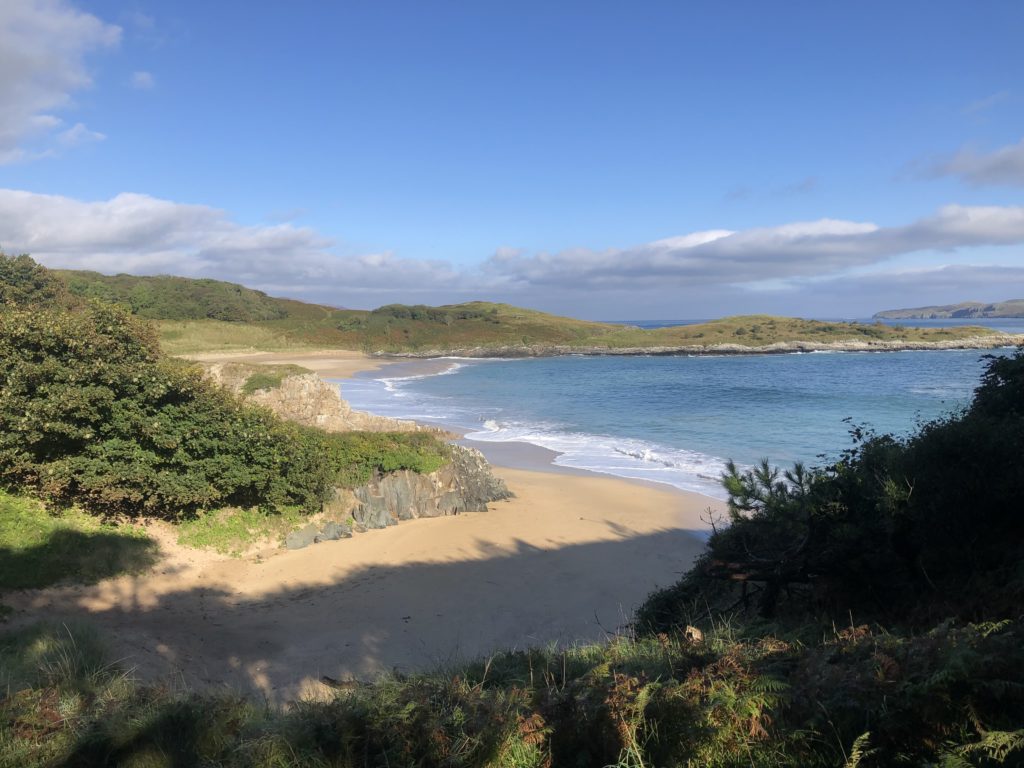People are often taken aback when I tell them I’m, say, spending three months in Europe, alone, as I’ve done this summer.
“You’re going by yourself?” they ask.
“Oh heavens, yes. I could never travel with another person.”
Nor, I might add, could another person possibly travel with me.
Partly this is because for me, travel is pilgrimage. Travel is in the best sense of the word penance.
Travel for me is not holding my phone aloft to capture “the moment” on film instead of actually experiencing it. Travel is growth, enlargement, giving myself to whatever place I’m in and receiving whatever the place might give to me.
For that, I have to be awake.
Thus I eat sparingly, walk as much as possible, and spend as much time as I can in prayer.
It’s a lot to carry, being a pilgrim. Sometimes it’s all too much and I have to take to bed with a bag of candy and watch three Joan Crawford movies in a row.
But for the most part I thrive on time alone. In fact, after rattling around for seven weeks in the County Galway village of Oughterard, I signed up for a four-day silent retreat at Ards Franciscan Friary, about as far north in Ireland as you can go.
I was almost completely incoherent as I babbled the first day to my poor spiritual director — what am I struggling with? What do I desire?
Finally I stammered out, “To order my life more closely and more completely to prayer.”
Carel, my sainted spiritual director, seemed to understand completely. She reminded me of Romans 8:26: “We do not know how to pray as we ought, but the Spirit itself intercedes with inexpressible groanings.”
In the friar’s chapel, with its worn, well-loved breviaries, we attended 12:15 Mass, and showed up each evening at 8 for adoration, when the doors of the plain wooden tabernacle were opened to reveal inner copper panels embossed with sheaves of wheat, and an illuminated monstrance.
The Donegal coastline is magnificent. Aquamarine water, cliffs russet with heather, blue-misted mountains, water crashing against barnacled rocks and breaking in long, low waves. Pastures of grazing sheep. Wild blackberries. Hidden beaches. Sun filtering through the impossibly high branches of ancient oaks and elms.
A stupendous gift: the freedom not to have to talk for several days. With the window open, I could look upon the water through the trees. Birds softly calling.
One plus of traveling alone is being forced to depend upon the kindness of strangers. Always there is someone to point to the right gate, queue, bathroom, dining hall, confessional.
Father Maurice Zundel, Swiss mystic, poet, and philosopher, observed:
“What a mysterious baptism are these tears we can hardly hold back when we see a loving face, revealing to us a world we possibly believe to have been abolished, and to which we, in all the sinews of our being, now feel we belong: the world of the spirit and of quality of silence and of light.”
Another plus is that both your strong and weak points are revealed. I didn’t know I could be this patient. I didn’t know that what I call “discipline” is sometimes more like a mania for control.
Do I really need to instantly respond to every text, e-mail, or comment, so as to “keep my desk clear.” Do I really need quite so often to bookmark, save, reserve at the library, put in a shopping cart?

“The great challenge is living your wounds through instead of thinking them through,” wrote Henri Nouwen. “It is better to cry than to worry, better to feel your wounds deeply than to understand them, better to let them enter into your silence than to talk about them. … You need to let your wounds go down into your heart. Then you can live them through and discover that they will not destroy you. Your heart is greater than your wounds.”
I have a hard time accepting human limitations, especially my own.
My last two assigned readings were perfect:
“Jesus did not deem equality with God something to be grasped at” (Phil. 2:6).
“For his sake I have accepted the loss of all things and I consider them so much rubbish, that I may gain Christ” (Phil. 3:8).
I left Ards praying: Help me to trust, to wait, to have reasonable expectations of myself and others.
People for the most part have been incredibly kind, but there are always a few who can’t help slamming the U.S., and California in particular.
As my trip progresses, I find myself thinking of the mating seals near San Simeon, and of Joshua Tree National Park, and of the Blessed Sacrament chapel at Our Lady of the Angels Cathedral.
I think of how you can buy all the used books you want on eBay, and of Silverlake Ramen, and of watching the sun set over downtown as you’re driving west on the 10.
“Oh I don’t know,” I’ll say. “The States are pretty great, in their way.”
Next stop: Bruges. Contemplating a bus, a flight, a train, and a cab ride,
I find myself thinking of the 17th-century Japanese haiku master Bashō:
“None to accompany me on this path:
Nightfall in autumn.”

